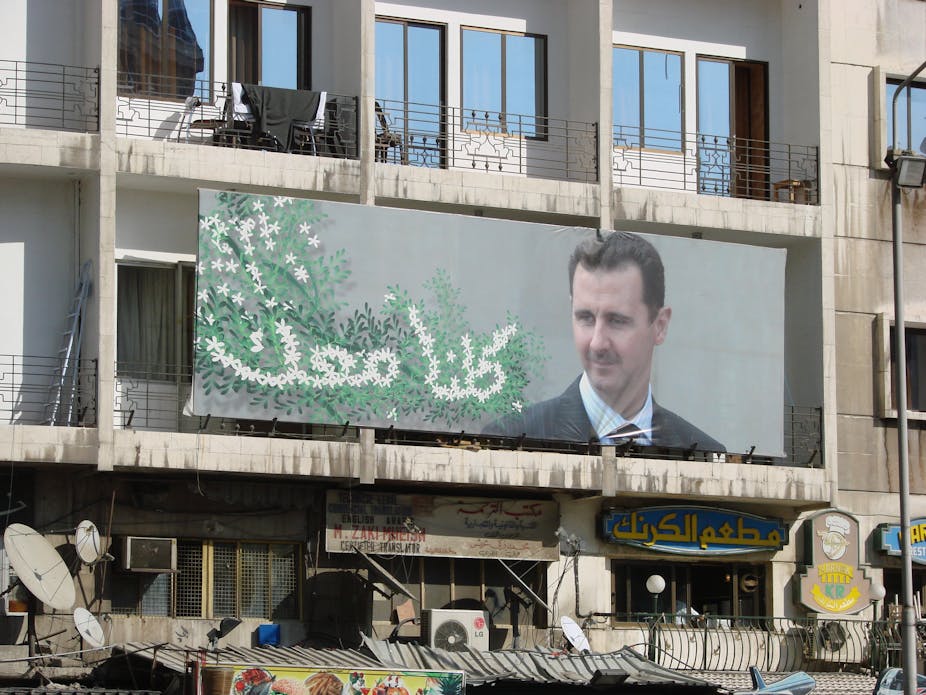Substantial evidence of torture and systematic killing of thousands of Syrian regime prisoners has emerged as final preparations are made for the Geneva II talks. The claims are unlikely to disrupt the meeting but may concentrate minds on the extent of the violence which has seen more than 100,000 people killed in 33 months of conflict and more than 9m people displaced out of a population of 21m.
The absence of Iran at the discussions is a blow, not least because many other regional states will send representatives, including Saudi Arabia, Kuwait, Jordan and the United Arab Emirates. Whatever the politics of the decision, it is a glaring omission to have such a key state absent.
In spite of this, though, there are two very limited things that the conference might achieve, making it marginally worthwhile for it to go ahead. One is some kind of agreement to improve access for humanitarian relief, just possibly linked to periodic local ceasefires.
If anything is forthcoming along these lines then it could be genuinely useful in human terms and might just catalyse some more permanent ceasefires. There have been a number of short-lived local agreements but nothing of substance so far. Any kind of movement involving regime and opposition groups, however small, would be welcome.
The other possibility is that some participating delegations put out purely informal “feelers”, using the occasion for strictly unofficial business. This is often the function of the annual sessions of the UN General Assembly and the much more frequent Security Council sessions and is why these separate specific conferences can have a role.
Regional proxy war
One of the key elements of the conflict in Syria is that it is a “double proxy” war. Immediate proxies are Iran for the regime and Saudi Arabia for the rebels. Even that is not straightforward, since there is evidence of Iranian paramilitary personnel fighting for the regime within Syria and the Saudis are selective in who they support among the rebels.
Above those proxies lie what might be called the “higher proxies” – Russia supporting the regime and the US, France and, to an extent, other European states supporting the rebels. Even here there are complications because the disparate and thoroughly disunited rebel forces are being steadily encroached upon by radical Islamist elements such as the al-Nusra Front and ISIL. These, with their links to the al-Qaeda idea, cause major problems for western states which are singularly unwilling to aid them, even if the Saudis will. And these groups have no interest whatsoever in negotiating with the regime.

There are many more complications including the role of Turkey and Hezbollah, and the increasingly close connection between Islamists in Syria and those fighting the Maliki regime in Baghdad. All this means that any prospect of moving towards an end to the war, as long as the different sides still think they can prevail, is remote.
With global significance
Is there any cause at all for optimism? Well, yes, there are two elements that seem to be growing in significance. One is the improving relationship between Tehran and Washington, coupled with the likelihood that Hassan Rouhani would like to see the war come to an end. His reasoning is that Syria is now becoming a base for radical jihadist Sunnis from across the Middle East. That is simply not good news for Shia Iran. It has enough problems on its plate without regional turmoil allowing a new al-Qaeda-linked entity coming to the fore.
The other element is the changing attitude of Russia. Putin’s government may have long since decided to back the Assad regime since Syria gives Russia its only substantial toe-hold in the Mediterranean with the naval facilities at Tartus. But it now has a problem in that the rise of the Islamist rebellion means that to radical Sunni Islamists across the world, Russia can readily be seen as supporting a regime intent on suppressing them. That is uncomfortable for Russia facing its own Islamist paramilitaries – the so called Caucasus emirate.
While that issue has recently come to the fore with the Volgograd bombings and impending Winter Olympics in Sochi, it will persist. Putin has no wish to see Russia ending up being parcelled along with the United States as part of the “far enemy”, so even the Russians may want to see some way forward in Syria.
The one element this leaves out is Saudi Arabia. If Riyadh can be persuaded it is in its interests to work with Iran, then both levels of the proxy might start the halting process of coming together, allowing some hope for progress. It is a tall order but any analysis that leaves out the position of Saudi Arabia is utterly inadequate in the search for an end to the war in Syria.

